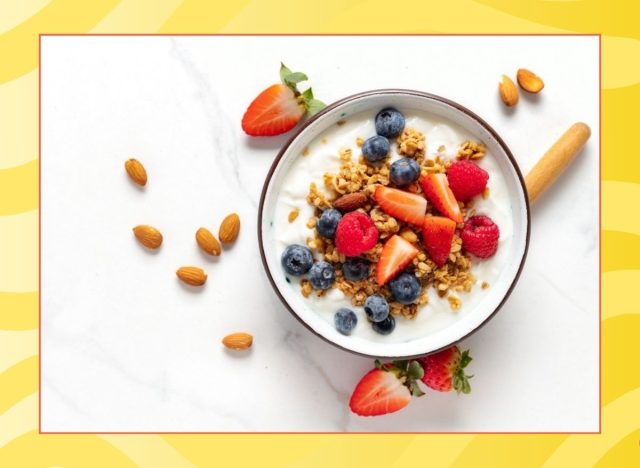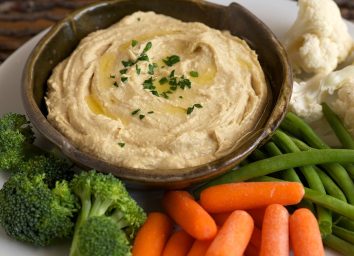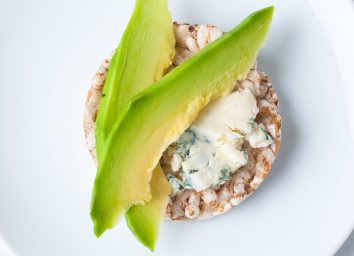Doctors Agree These Are the Best New Year's Resolutions

It's the perfect time to reflect on the year and start planning how you can become a healthier you in 2020. We're not just talking about the first two weeks of January, either. Year after year, countless positive resolutions are made, but by the end of the month, they may no longer be at the forefront of your mind—because, well, life.
Oftentimes, resolutions die out after the first few weeks in the new year because they're simply not sustainable. Start thinking of your New Year's resolutions as a lifestyle change, not a crash-course diet. We asked doctors to share resolutions that they and their colleagues would consider the best New Year's resolutions you can make for long-lasting results in the year ahead. Also, be sure to check out the simple, healthy habits you can change for 2020 to maximize your healthy results!
Here are the best New Year's resolutions, according to doctors.
Make a plan that you'll stick to throughout the whole year.

"Don't plan to do everything in January and don't pick behaviors that are nebulous like 'I'm gonna start working out more.' Instead, create a plan and add behaviors, as needed, in stages throughout the year. Habits take time to form and you may feel overwhelmed, or coerced, if you overload yourself. Start with one, get comfortable with it, and then add another. Create calendar reminders now to stay on task later."
— Laura F. Dabney, MD
Start making exercise fun so you actually do it.

"Move your body. I don't care if you walk halfway around the block or if you get on the bicycle and bike 50 miles, or go to the gym—you've got to keep your body moving. You either move it or lose it."
— Dr. Paul Dean, founder of SkinResource.MD
"For exercise, do things that are fun. Meanwhile, schedule these to be done with a friend, so that you actually show up. For example, walking in the park [and] shopping are good exercises. Resolve to cut out things that feel bad."
— Jacob Teitelbaum, MD and author of From Fatigued to Fantastic!
Seek out healthful foods that you'll actually want to eat.

"Find healthy whole foods that you enjoy adding into your diet, instead of cutting out things you enjoy. For example, resolve to add a handful of berries to your breakfast every morning. The antioxidants have multiple health benefits. Instead of cutting things out, substitute one pleasurable thing for another. Sodas and fruit juices each have three-quarters of a teaspoon of sugar per ounce, and neither are healthy. Instead, substitute [with] tea and sweeten with Stevia. Or add in vegetable juices."
— Teitelbaum
Practice mindfulness in every facet of your life.

"Mindfulness in our behavior will go a long way in helping us achieve our goals. Mindful eating will automatically find us gravitating to health-promoting food—savoring each bite will slow down the speed with which we eat and cut down portion size. Being mindful of physical activities that are enjoyable will let us meet our fitness goals without the sensation of torture. If extended to all aspects of the day, mindfulness makes life more complete. We may just stop saying, 'Where did the last year go?'"
— Suman Radhakrishna, MD
Stay hydrated throughout the day.

"Drink more water! I usually recommend four 16 ounce bottles of water consumption daily for my patients. It helps to flush the urinary tract of bacteria and also prevents stone formation. First line therapy in UTI prevention is hydration and the most common cause of kidney stones is having concentrated urine, so please drink up."
— Anika Ackerman, MD, urologist
Limit red meat consumption to once a week.

"It's not just the fat in red meat, it's the chemicals in red meat that increase the incidence of certain cancers. Stop eating red meat more than once a week."
— Dean
Make an effort to reduce your stress levels.

"Stress produces chemicals in your brain which damage every organ in your body and it impairs your immune system. For a healthy immune system, keep your stress levels low. For low-stress levels, exercise daily."
— Dean
Start eating foods in this order for better digestion and nutrient absorption.

"The order of your food intake may also be of benefit in your efforts to get healthy. As you strive to establish good habits, you may find it does your gut good to eat in this order: 1. Start each meal with fibrous carbs such as a salad, mixed vegetables, etc. 2. After you have consumed about 1⁄2 of your fibrous carbs, start eating your proteins and fats (meat portion of the meal) along with the rest of your fibrous carbohydrates. 3. Then slowly start on healthy carbohydrates, such as quinoa or amaranth. 4. Add jalapenos, habanero, and cayenne peppers to your meal. These all contain capsaicin (gives peppers their "kick"), a chemical shown to help increase metabolism. "
— Dr. Warren Willey, author of What Does Your Doctor Look Like Naked? Your Guide To Optimal Health
Get tested for food sensitivities so that you can eliminate discomfort and become more energized.

"Ninety-five percent of Americans suffer from food sensitivities, yet they're among the most commonly under-diagnosed areas of clinical medicine. This is because unlike food allergies, food sensitivities are usually limited to digestive problems (like bloating, inflammation, lethargy) and the symptoms don't always show up immediately, making it even harder to pinpoint which ingredients are upsetting your body."
— Dr. Olga Ivanov, MD, FACS, and owner of IV Lounge
Don't let your resolutions consume you.

"Don't let resolutions become chains. Instead, take them somewhat lightly. Yes, stick to them as much as possible, but don't put too much pressure on yourself. You need to find the balance that works. After all, these changes are supposed to make your life better and not worse, right?"
— Dabney








